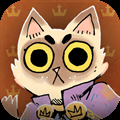Warhammer 40,000: Rogue Trader Devs Explain Why They’re Limiting Player Choice

Owlcat Games always wanted to make a Warhammer video game. In fact, Owlcat approached Games Workshop with an idea specifically for a Rogue Trader video game right off the bat, and the two companies immediately hit it off. Owlcat devs are gamers, whether that be video, board, or tabletop, and many of them have played Warhammer for decades. As it turns out, many Games Workshop employees were big fans of Owlcat’s games like Pathfinder.
CRPGs are probably the closest genre of video game to tabletop battles, offering freedom to explore their worlds in almost any imaginable way. And after sharing their mutual appreciation for each other’s work, Owlcat and Games Workshop put their collective heads together and came up with the premise for Warhammer 40,000: Rogue Trader.
Related: Blood Bowl 3 Season 2 Brings Underworld Denizens, Spectator Cams, And League Updates
Rogue Trader is almost an IP-within-an-IP. Rogue Traders, as characters, have been around for decades, but with the 2018 boxed game (imaginatively named Warhammer 40,000: Kill Team – Rogue Trader), has taken on a life of its own within the Warhammer 40,000 universe. For Owlcat, this subsection of cutthroat mercenaries was an opportunity to show what life was like for regular denizens of the Imperium, away from the super soldiers and alien war fleets.
“[People] know a lot about Space Marines, their great battles and great events,” narrative lead Olga Kelner explains. “And since the focus of our game is a little bit different, we had a chance to focus on the smaller life that goes on in the Imperium, and to show that, while there are Space Marines who are using this amazing armour and amazing weaponry and there are war ships flying around the galaxy, the majority of the Imperium lives on a very medieval level where they have guilds, they have a feudal structure, and they have very weird religions.
“This is something that we were able to amplify because you can go to the places where you can meet these people, you can talk to them or you can watch them live and see what they discuss and how they discuss it.”
The team used the perspectives of normal people in the Imperium to give a new insight into aspects of the 40k universe that players may take for granted. When I think of a Servitor, I think of repairing my Dreadnought. Think a bit harder, and I remember how messed up it is that these are real people with limbs surgically altered to become wrenches and welders so they better perform their job. But when an Imperial serf thinks about a Servitor, they may come to a very different conclusion.
“The setting is very grotesque and there's a lot of grotesque things that we managed to put in,” Kelner continues. “For example, the use of Servitors. From our standpoint, that's something awful. But for somebody else, it might be the way to preserve somebody who is dear to you.”
Everything in Rogue Trader is used to make it more immersive. Perspectives of regular people make its world feel far more grounded than, say, the superhuman feats of Captain Titus in Space Marine 2, and that immersion makes players care about the decisions they make. Executive producer Anatoly Shestov explains that to fully immerse players, and to keep the game accurate to Games Workshop’s extensive lore, Owlcat often needed to restrict players, even when it seems counterintuitive to the gameplay of a CRPG.
“People shouldn’t go naked in Warhammer,” Shestov explains. “It’s not how the setting works […] so we have outfits that can’t be changed. If you’re picking an Adeptus Ministorum character, you will always have the base of the outfit, and some parts of that outfit will always be visible, whichever equipment you wear.
“It’s a strange solution, it’s forbidding players from going to the wardrobe and changing it freely because in Warhammer, you are what you wear, and you wear what you are. You don't have freedom to change your life, your background, your backstory, you can't change the things that you are allowed to wear by the laws of the setting itself.”
The same attention to detail goes into every part of the game, from planet politics to starship firefights. There’s no way to turn off friendly fire because, well, can you be sure you won’t hit your allies if you’re firing into a melee? This is a brutal world with brutal consequences to your every decision, and removing any of that realism would wreck any semblance of immersion.
Owlcat’s CRPG chops and Games Workshop’s deep pool of lore feel like a match made in heaven, and the attention to detail that both companies have poured into their work might make this one of the best Warhammer games ever. Shestov was already shocked that some players called the unfinished beta their Game of the Year, and Kelner has loved seeing kitbashes and conversions of their characters to use on the tabletop. Fans are excited by Warhammer 40,000: Rogue Trader, and it’s easy to see why. Now it just has to live up to the hype.
Next: Stardew-like Lord Of The Rings Game Tales Of The Shire Is Exactly What The World Needs













